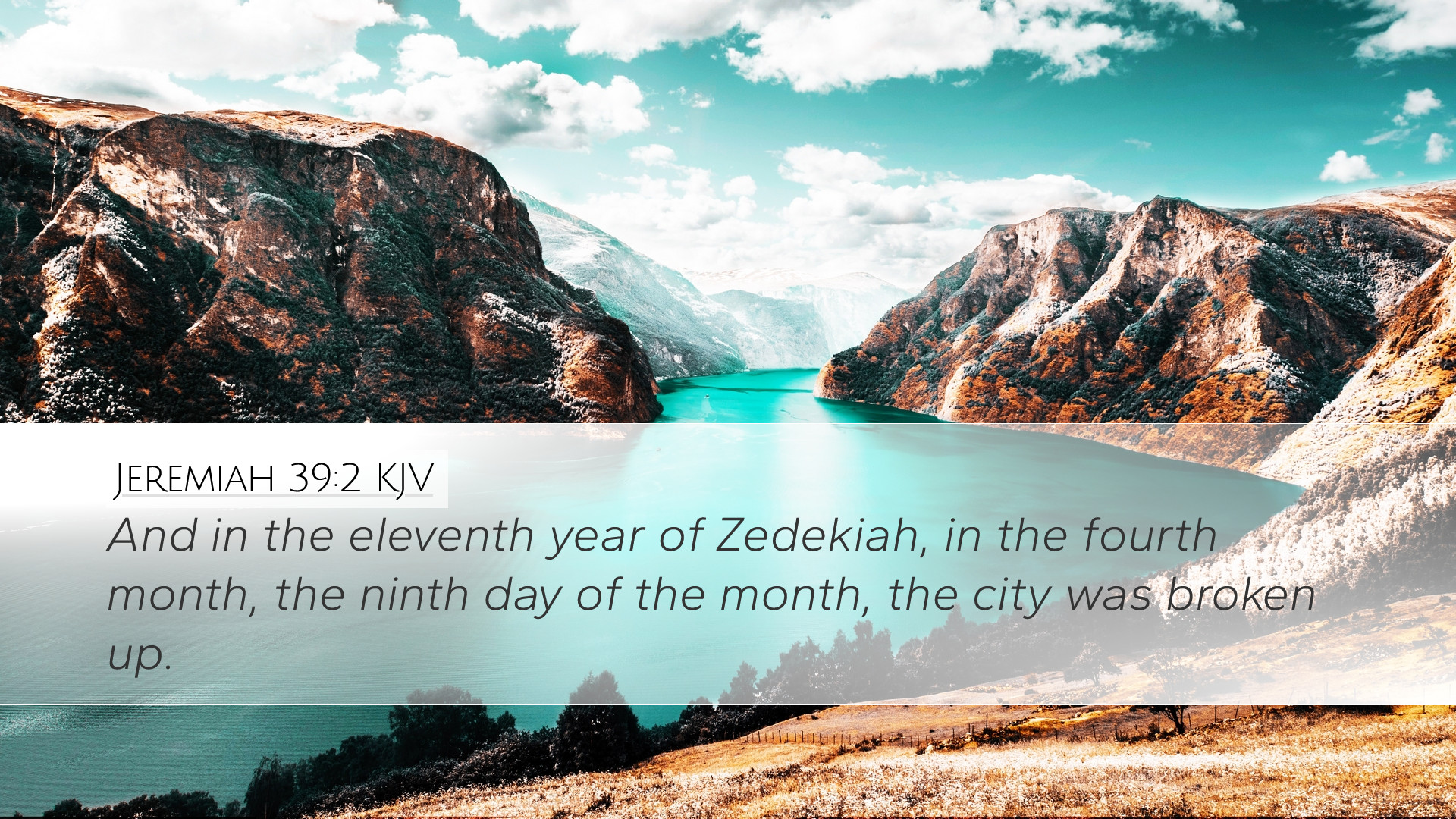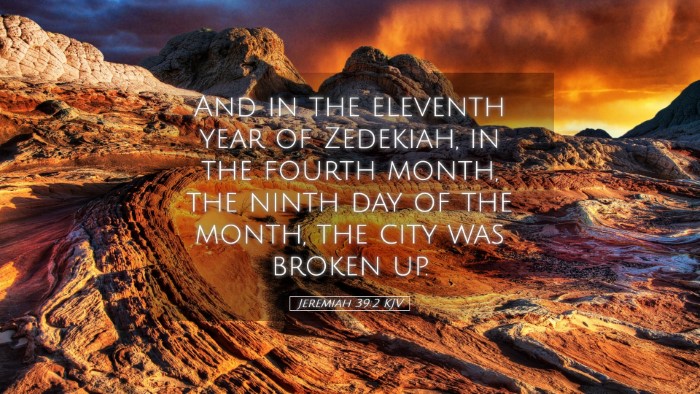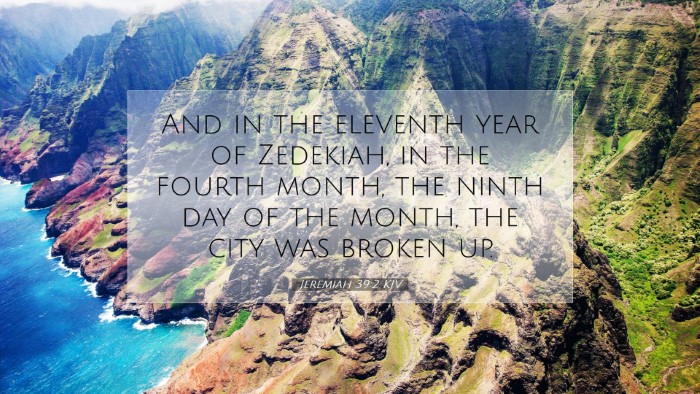Commentary on Jeremiah 39:2
Jeremiah 39:2 (ESV): "In the ninth year of Zedekiah king of Judah, in the tenth month, Nebuchadnezzar king of Babylon and all his army came against Jerusalem and besieged it."
Introduction
This verse marks a pivotal moment in the history of Judah and serves as a backdrop for the unfolding drama of Jeremiah’s prophetic ministry. The siege of Jerusalem under King Zedekiah represents both a literal and a spiritual calamity. It is essential for pastors, scholars, and students of the Bible to grasp the implications of this event within the broader narrative of Scripture.
Historical Context
The siege of Jerusalem described in Jeremiah is situated in a period of great turmoil for the nation of Judah. The prophet Jeremiah, often referred to as the "weeping prophet," spent years warning the people of impending judgment due to their unfaithfulness and idolatry. The ninth year of Zedekiah's reign (circa 588 BC) indicates a time when Judah was cornered, politically and morally, appearing hopeless against the might of Babylon.
Insights from Commentaries
-
Matthew Henry:
Henry emphasizes the significance of this siege in illustrating the consequences of sin. He notes that God’s patience has limits, and when His warnings go unheeded, judgment follows. Jeremiah 39:2 serves as a sober reminder that rebellion against God must lead to inevitable consequences, and provides insight into the seriousness of divine judgment.
-
Albert Barnes:
Barnes highlights the historical and geopolitical aspects of the siege. He explains that this event was not only a judgment upon Judah but also a significant move in the overarching struggle between Babylon and the remnants of Israel. Barnes underscores that God used Nebuchadnezzar as an instrument for judgment, showcasing the theme of divine sovereignty amidst geopolitical chaos.
-
Adam Clarke:
Clarke focuses on the situation of the people during the siege. He explicates the mental and emotional states of those who experienced this calamity, including the desperation and fear present within Jerusalem’s walls. Clarke provides a poignant reflection on the reality of despair when people fail to heed God’s calls to repentance, which is a timeless lesson for today’s believers.
Theological Implications
The events in Jeremiah 39:2 prompt deep theological reflection on themes such as divine justice, human agency, and the nature of prophecy. The scholar must consider how this siege not only fulfilled prophetic words but also served as a period to examine the relationship between God and His chosen people.
Divine Justice and Mercy
The siege manifests God’s justice; it was prophesied that disobedience would lead to dire consequences. However, within this framework, there exists the dimension of mercy—God's persistent call to repentance throughout Jeremiah's ministry demonstrates His longing for restoration over destruction. The challenge for interpreters is to balance God's justice and mercy when engaging with such texts.
Human Agency and Responsibility
The unfolding of events in Jerusalem underscores human choices. Zedekiah's decisions reflect the larger narrative of human rebellion against divine authority. The commentary from Matthew Henry suggests an exploration of how collective sin leads to communal consequences. This highlights the role of leadership in guiding people towards or away from God's will.
Practical Applications
For contemporary audiences, the implications of Jeremiah 39:2 resonate deeply as they contend with their own societal challenges. The lessons derived could be vital for pastors and church leaders in addressing issues of moral failure, the importance of repentance, and reliance on God's sovereignty during crises.
-
Call to Repentance:
Pastors can leverage this passage to urge congregants toward genuine repentance. The siege serves as a metaphor for the spiritual barrenness that ensues from neglecting God's commands.
-
Encouragement in Trials:
In times of distress, reflecting on this verse may encourage believers to trust in God’s ultimate sovereignty and faithfulness, even amidst calamity.
-
Leadership Responsibility:
Church leaders must be vigilant in guiding their communities toward faithfulness, recognizing that their actions directly influence the spiritual health of their congregations.
Conclusion
Jeremiah 39:2 stands not only as a historical record but as a vivid reminder of spiritual truths that transcend time. As scholars, students, and pastors delve into this text, they uncover layers of meaning surrounding divine judgment, mercy, human agency, and the necessity of heeding God’s voice. This commentary synthesizes insights from respected theologians to provide a comprehensive understanding of a pivotal moment in scripture, equipping readers for deeper engagement with biblical truths.


